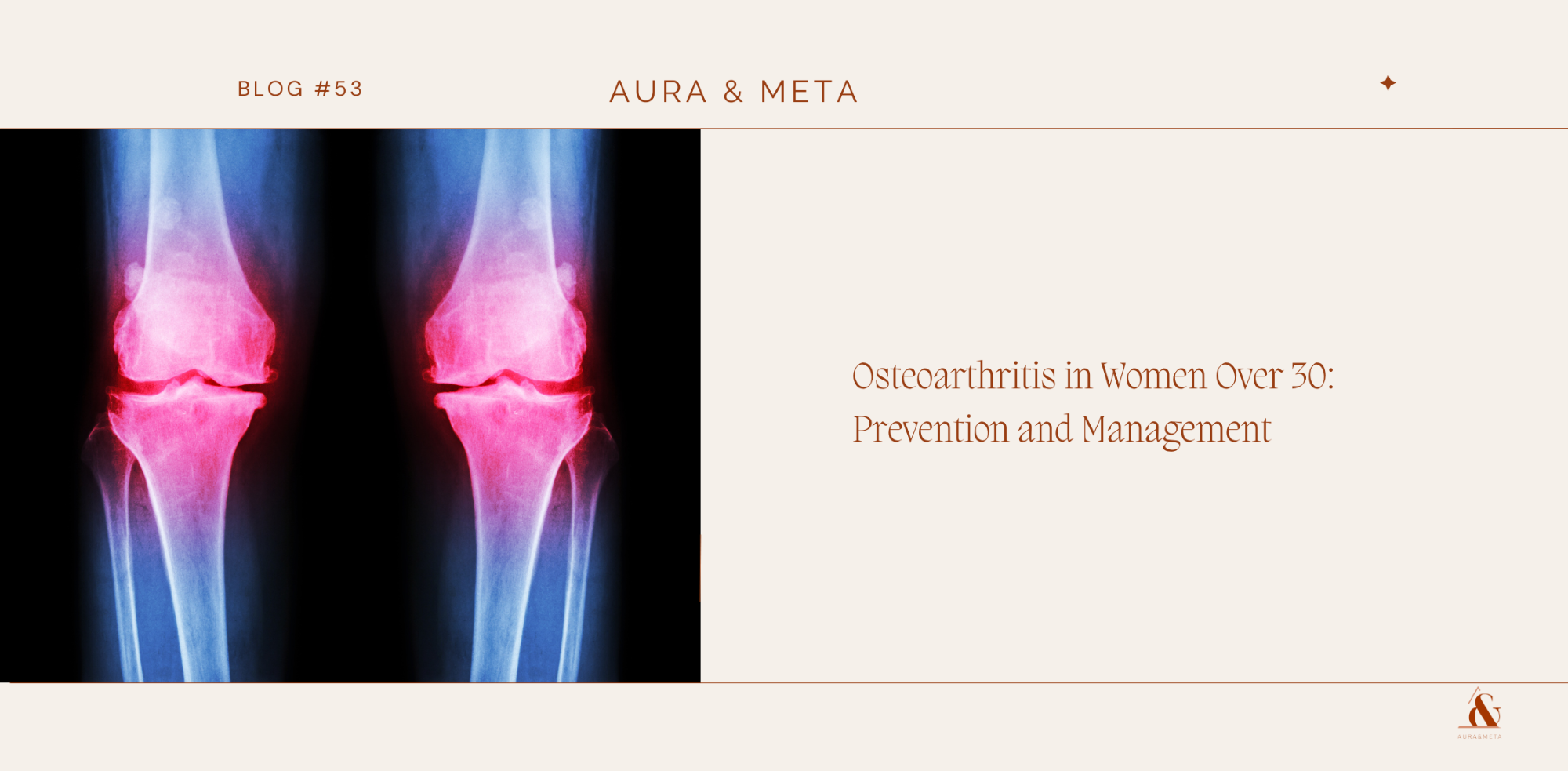Osteoarthritis (OA) is a common condition affecting millions of women, especially those over the age of 30. As the most prevalent form of arthritis, it primarily affects the joints, leading to pain, stiffness, and decreased mobility. While traditionally considered a disease of wear and tear, emerging research shows that osteoarthritis is a more complex, multifactorial condition. Functional medicine offers a holistic approach to managing osteoarthritis, addressing not only joint health but also the underlying factors such as inflammation, metabolism, and hormone imbalances.
Understanding Osteoarthritis in Women Over 30
Osteoarthritis is characterized by the degeneration of cartilage, the tissue that cushions joints. Over time, this leads to bone-on-bone contact, causing pain and inflammation. Women are particularly susceptible due to several factors, including hormonal changes, metabolic shifts, and higher rates of obesity post-menopause. Declining levels of estrogen after menopause can accelerate the degradation of cartilage, and hormonal imbalances can also increase inflammation, further contributing to the condition.
At Aura & Meta, we specialize in helping women understand and manage osteoarthritis using functional medicine principles, focusing on the root causes of their joint pain and developing individualized treatment plans to promote healing and restore joint health.
Key Risk Factors and Causes of Osteoarthritis
- Hormonal Changes: Estrogen plays a protective role in cartilage health, and its decline during menopause contributes to the increased prevalence of osteoarthritis in women over 30. Hormonal imbalances can further accelerate cartilage breakdown.
- Inflammation: Chronic, low-grade inflammation is a key driver of osteoarthritis progression. This can be triggered by poor diet, gut dysbiosis, and immune system dysfunction, all of which can be evaluated through functional testing.
- Obesity and Metabolic Syndrome: Excess body weight places additional stress on weight-bearing joints like the hips and knees. Additionally, metabolic syndrome, characterized by insulin resistance and high blood pressure, is strongly linked to inflammation and osteoarthritis.
- Nutrient Deficiencies: Deficiencies in key nutrients such as Calcium, Magnesium, vitamin D, and antioxidants can impair joint health and cartilage repair. Functional medicine focuses on optimizing nutrient intake to support joint function.
- Genetics: Genetic predispositions may play a role in the development of osteoarthritis, making personalized care and testing crucial for identifying and addressing these factors. The Nutrigenomic testing is one such test that can provide insights into genetic risks related to metabolism and inflammation.
- Gut health: Gut microbiome imbalance and potential leaky gut may lead to systemic inflammation in the body and may also trigger Osteoarthritis development.
Functional Medicine Approach to Osteoarthritis Management
Functional medicine seeks to treat osteoarthritis by addressing the root causes of joint degeneration and inflammation, rather than merely managing symptoms. At Aura & Meta, we use a range of diagnostic tools and strategies to create personalized treatment plans that support overall joint health and target the underlying drivers of osteoarthritis.
- Anti-Inflammatory Diet
A diet rich in anti-inflammatory foods can help manage osteoarthritis symptoms by reducing systemic inflammation. This includes:- Omega-3 fatty acids from fish and flaxseeds
- Antioxidant-rich fruits and vegetables such as berries, leafy greens, and cruciferous vegetables
- Turmeric and ginger, which contain compounds that may reduce joint inflammation
- Weight Management
Maintaining a healthy weight is critical for reducing joint stress, especially in the knees and hips. A personalized weight management program that focuses on balancing blood sugar, metabolism, and hormone levels is key to achieving and maintaining a healthy weight. - Hormonal Support
Addressing hormonal imbalances, particularly oestrogen deficiency, is vital for women over 30 dealing with osteoarthritis. We use DUTCH testing to assess hormone levels and develop strategies for supporting hormonal health. Phytoestrogen-rich foods, such as flaxseeds and soy, can mimic oestrogen in the body and may help protect joint health. - Gut Health and Inflammation
Gut health is directly linked to inflammation, and poor gut function can exacerbate osteoarthritis symptoms. We often recommend probiotics and prebiotics to support gut microbiome balance, as well as specific nutrients like glutamine and collagen to heal the gut lining. - Exercise and Movement
Low-impact exercises such as swimming, yoga, and walking are excellent for maintaining joint mobility and reducing stiffness. Additionally, strength training can help build muscle around the joints, providing better support and reducing the load on damaged cartilage. - Advanced Functional Testing
Functional tests such as the Nutrigenomic testing can help identify metabolic and genetic factors that may contribute to osteoarthritis. These insights allow for a more targeted approach, helping you optimize your metabolic health and reduce joint pain.
Osteoarthritis is a complex, multi-system condition that requires more than just pain management. By addressing the root causes—such as inflammation, hormonal changes, and nutrient deficiencies—functional medicine offers a comprehensive and personalized approach to managing osteoarthritis in women over 30. At Aura & Meta, we aim to provide solutions that not only alleviate pain but also support long-term joint health and overall well-being.
For more information or to schedule a discovery call, please visit our contact page.

